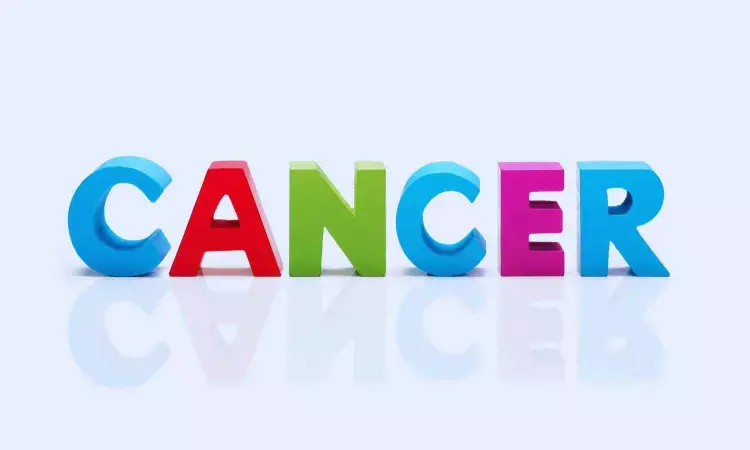- Home
- Medical news & Guidelines
- Anesthesiology
- Cardiology and CTVS
- Critical Care
- Dentistry
- Dermatology
- Diabetes and Endocrinology
- ENT
- Gastroenterology
- Medicine
- Nephrology
- Neurology
- Obstretics-Gynaecology
- Oncology
- Ophthalmology
- Orthopaedics
- Pediatrics-Neonatology
- Psychiatry
- Pulmonology
- Radiology
- Surgery
- Urology
- Laboratory Medicine
- Diet
- Nursing
- Paramedical
- Physiotherapy
- Health news
- Fact Check
- Bone Health Fact Check
- Brain Health Fact Check
- Cancer Related Fact Check
- Child Care Fact Check
- Dental and oral health fact check
- Diabetes and metabolic health fact check
- Diet and Nutrition Fact Check
- Eye and ENT Care Fact Check
- Fitness fact check
- Gut health fact check
- Heart health fact check
- Kidney health fact check
- Medical education fact check
- Men's health fact check
- Respiratory fact check
- Skin and hair care fact check
- Vaccine and Immunization fact check
- Women's health fact check
- AYUSH
- State News
- Andaman and Nicobar Islands
- Andhra Pradesh
- Arunachal Pradesh
- Assam
- Bihar
- Chandigarh
- Chattisgarh
- Dadra and Nagar Haveli
- Daman and Diu
- Delhi
- Goa
- Gujarat
- Haryana
- Himachal Pradesh
- Jammu & Kashmir
- Jharkhand
- Karnataka
- Kerala
- Ladakh
- Lakshadweep
- Madhya Pradesh
- Maharashtra
- Manipur
- Meghalaya
- Mizoram
- Nagaland
- Odisha
- Puducherry
- Punjab
- Rajasthan
- Sikkim
- Tamil Nadu
- Telangana
- Tripura
- Uttar Pradesh
- Uttrakhand
- West Bengal
- Medical Education
- Industry
High Sucralose Intake May Lower Effectiveness of Immune Checkpoint Inhibitors in Cancer Patients: Study

Cancer
Research published in Cancer Discovery suggests that high consumption of the artificial sweetener sucralose may reduce the effectiveness of immune checkpoint inhibitors (ICIs) in cancer patients. The research revealed that sucralose disrupted the balance of the gut microbiota, inhibited T cell function and metabolism, and eventually dampened the efficacy of immune checkpoint inhibitors (ICIs), i.e., anti-PD-1 based treatments. The study was published by Kristin M. and fellow researchers.
The study probed the way diet affects gut microbiota and downstream immune responses in preclinical models of cancer and advanced cancer patients treated with ICI. Although the gut microbiota is known to influence cancer immunity, the particular effect of non-nutritive sweeteners was uncertain. In this research, direct evidence was given that sucralose intake altered microbial composition and decreased the pool of microbiota-accessible arginine, an amino acid necessary for T cell function.
Key Findings
• 1 shared sweetener (sucralose) profoundly changed gut microbiota composition.
• T cell metabolism and function were limited under sucralose treatment.
• Anti-PD-1 immunotherapy efficacy was decreased in preclinical cancer models and patients with advanced cancer.
• Arginine levels available to the microbiota decreased following sucralose consumption.
• Amino acid supplementation or fecal microbiota transfer (FMT) from responder mice fully restored T cell function and immunotherapy results.
The researchers isolated the biological process underlying sucralose's adverse effect. Sucralose changed microbial makeup within the gut, which then decreased the microbial pool of available arginine. Arginine is instrumental in T cell activation and metabolism. Without adequate arginine, T cells lost their functional abilities, restricting their capacity to develop effective immune responses against cancers. Restoring arginine levels—either by supplementation or microbiota transfer—restored normal T cell function and response to immunotherapy.
This research determined that sucralose intake destabilizes microbiota of the gut, decreases microbiota-accessible arginine, disrupts T cell metabolism, and eliminates response to anti-PD-1 immunotherapy. Notably, resupplementation of amino acids or microbiota transfer from responder subjects negated the adverse effects. These findings emphasize the necessity of dietary consideration in cancer therapy, as an ubiquitous artificial sweetener could perilously undermine lifesaving immunotherapies.
Reference:
Dr Riya Dave has completed dentistry from Gujarat University in 2022. She is a dentist and accomplished medical and scientific writer known for her commitment to bridging the gap between clinical expertise and accessible healthcare information. She has been actively involved in writing blogs related to health and wellness.
Dr Kamal Kant Kohli-MBBS, DTCD- a chest specialist with more than 30 years of practice and a flair for writing clinical articles, Dr Kamal Kant Kohli joined Medical Dialogues as a Chief Editor of Medical News. Besides writing articles, as an editor, he proofreads and verifies all the medical content published on Medical Dialogues including those coming from journals, studies,medical conferences,guidelines etc. Email: drkohli@medicaldialogues.in. Contact no. 011-43720751


